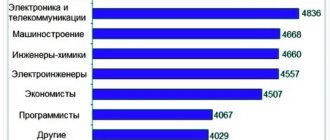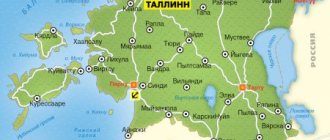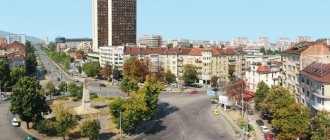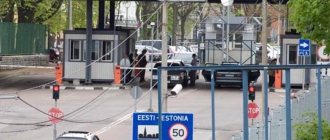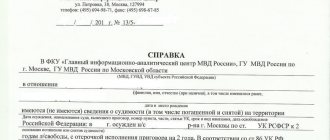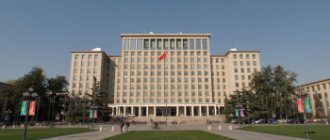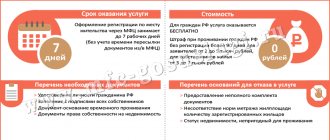Who earns how much in Latvia
If, upon arriving in this cozy country, you get a job as a manager or salesperson, your average salary will be about 1,100 - 1,400 euros per month. If you take on the management of a construction project, be prepared to be paid on average from one to one and a half thousand euros. Marketers and other advertising and promotion specialists are at the same salary level. Programmers and system analysts receive from 1 to 2.5 thousand euros. The salaries of company executives range from 1,100 to 7,200 euros.
The highest salary level is, of course, in the capital of Latvia – Riga. There, workers of any profession receive a quarter, or even twice as much, as in other cities. But, as one might expect, prices are higher in Riga. Therefore, you should not immediately rush to the capital without thinking about this decision.
If you are going to stay in Latvia longer than the 90 days prescribed by the guest visa, you need a long-term visa type D and necessarily a residence permit with the ability to conduct professional activities. You should only go to the Latvian embassy in your home country to obtain such a visa. You will need the following documents:
- two completed forms - for a visa and for a residence permit;
- valid international passport;
- three photographs for documents, color, no more than six months old;
- medical insurance (not cheaper than 42,600 euros);
- a certificate that you have not been convicted;
- confirmation of registration and citizenship in the country;
- a certified copy of the employment contract with a foreign employer + official invitation to work.
Unlike other countries, visas to Latvia are refused extremely rarely, and serious reasons are needed for this. Residents of the CIS countries are attracted by hassle-free conditions for entry and employment, in addition to salaries, which are much higher than in their homeland. A pleasant bonus is that it is quite cheap to live in Latvia, rent or even buy housing to start a new life and a new career. Some workers stay in the country forever, others return home with the money they earned, and for some, Latvia becomes a springboard to more developed countries. One way or another, Latvia can be considered as a confident “transshipment point with strong and reliable income, and this is already a lot.
And finally, when deciding to move, be sure to consult with those people who already have experience making money in a foreign country. Their opinion is truly valuable because they have been through what you are just preparing for.
National diasporas in Latvia
Speaking about who lives in Latvia now, we can mention more than a dozen nationalities: Russians, Ukrainians, Belarusians, Poles, Lithuanians, Jews, Gypsies, Estonians, Germans, etc. At the same time, Latvians make up 62.10% of the total population of the state. It should be noted that the diversity of the population was initially characteristic of Latvian cities, especially those that were located at the intersection of trade routes and in border areas.
As for refugees, by 2021 Latvia has accepted 65% of migrants under the two-year quota established by the EU. However, migrants in Latvia in 2021 do not linger, but strive to proceed to other European countries. The main reason for this is the lack of active assistance in solving everyday problems from the state and the low amount of benefits. Currently it is 139€ per month per person plus 97€ for each additional family member. However, when leaving the country, migrants are not required to notify the authorities.
The cultural development of the country depends on which peoples live in Latvia. Thus, in the 19th century, the country experienced the active influence of German culture, which was later replaced by the influence of Russian. Currently, the state is actively fighting for the revival of the Latvian language and local national traditions, so other cultures no longer have a decisive influence.
Various nationalities in Latvia have their own diasporas. The largest of them are Russian, Ukrainian and Belarusian. In addition, there are bilingual kindergartens and schools in the country, where communication and teaching are conducted in Latvian and Russian. This is very convenient at first for Russian-speaking migrants. However, students often choose German or English as a foreign language rather than Russian. It should be taken into account that knowledge of the Latvian language greatly simplifies obtaining higher education and employment.
Russian diaspora in the Republic of Latvia
Russians are the largest national minority in Latvia. The percentage of Russians from the total population is 19.6%. At the same time, 62.5% of the Russian-speaking population has Latvian citizenship. More than 50% of them speak Latvian. Along with Estonia, Latvia abandoned the zero citizenship option after the collapse of the USSR, and only those who received it before 1940 retained citizenship.
Ukrainian diaspora in Latvia
As of 2021, more than 50,000 Ukrainians live in Latvia. Both countries are actively working to establish favorable bilateral relations.
Currently, the Ukrainian National Society “Dnipro”, the Union of Ukrainians of Latvia and the Ukrainian Youth Club operate in Latvia. The Riga Ukrainian School operates in the capital.
Belarusian diaspora in Latvia
About 100,000 Belarusians live in Latvia. Most of them, namely about 30,000 people, live in Riga. It is noteworthy that only 18% of Latvian Belarusians named Belarusian as their native language - representatives of this nationality in Latvia are predominantly native speakers of Russian.
There are several national Belarusian organizations operating in the country: “Svitanak”, “Pramen”, “Uzdym”, “Spadchyna”. The Belarusian newspaper “Pramen” is published.
All this characterizes Latvia as a multinational state, aimed, however, primarily at the revival and development of local Latvian traditions and language.

In 2021, the average monthly net salary in Latvia increased by 6.2
In 2021, compared to 2021, the average monthly net salary in Latvia increased by 6.2% to 894 euros, according to a study conducted by the personnel selection company CV-Online Latvia LLC.
However, compared to last year, this difference decreased by 1 percentage point, which indicates a decrease in the shadow economy, he emphasized. As the head of CV-Online Latvia
Alvis Brodiņš
, people in Latvia earn more than official statistics indicate, so According to the Central Statistical Office, the average net salary in Latvia last year was 676 euros - 24% less than according to the study. This indirectly points to the shadow economy and salaries “in envelopes”.
There is a significant difference between the average net salary in Riga and in the regions. So, if workers in Riga last year received an average of 968 euros, then in Zemgale - 690 euros, in Vidzeme - 681 euros, in Kurzeme - 673 euros, and in Latgale - 593 euros.
The highest average salary last year was for those working in large international private enterprises - an average of 1,000 euros "in hand", and the lowest for those working in the education sector - 614 euros. Health and social care workers received an average of 631 euros last year, and cultural and arts workers received an average of 657 euros per month.
Salaries increased the most over the year in the service sector and construction, as well as in agriculture and education.
In the distribution by position, senior managers earned the most in 2021 - 2,330 euros in hand.
The average net salary for men in 2021 was 1,021 euros, for women - 806 euros, which is 27% less. Men in senior positions earned an average of 2,200 euros, 16% more than women (1,900 euros).
Last year, employers provided employees with additional benefits such as free drinks (40%), health insurance (39%), informal work events (32%), a mobile phone for personal use (23%), flexible work hours (20%) , gifts in honor of important events (17%).
In 2021, more than 40% of entrepreneurs plan to increase salaries for their employees.
CV-Online Latvia research results
received by analyzing the information from the Algas.lv database for 2017 on the salaries of more than 25 thousand employees.
How to find a job in Riga
Riga is a key economic, financial and business city in Latvia and the Baltic countries in general. The largest Latvian enterprises are concentrated here. For example, Latvenergo, Latvijas Gāze and airBaltic. The stock exchange and central bank of Latvia are also located in Riga. The number of international companies is constantly growing. Therefore, create a competent resume and cover letter. Write job offers to major employers directly.
Visit Riga with a tourist visa. Russian-speaking citizens or labor migrants living in Latvia can help with finding a vacancy. Look through advertisements in local newspapers, attend job fairs, and try to make business contacts. You may be able to pass an interview and convince a local employer of your competitive advantages. Remember that Latvians and Europeans have priority positions when filling a vacancy in Riga. Soberly assess your chances, especially your qualifications and language skills.
Qualification. Highly paid work in Riga for Russians, Ukrainians and foreigners is available to highly qualified applicants who have a profession in demand for the city’s economy.
The level of education, experience and practical skills of the employee are important. Technical specialists have a greater chance of finding employment in Riga in 2019
Language. The official language in Latvia is Latvian. Mostly the younger generation, usually residents of the capital region, speak English fluently. Unlike many EU cities, when looking for a job in Riga, Russian and basic Latvian skills may be quite sufficient. English will be needed for employment in international companies.
Unfortunately, the level of remuneration for Riga workers is significantly inferior to most European capitals. It is not surprising that young Latvians are eager to go to work in countries such as the UK or Germany. If employment in London can provide a salary of 3–3.5 thousand euros (after taxes), then in the capital of Latvia these figures are 4 times lower. The average salary in Riga in 2021 is 1,129 euros per month, and after taxes 829 euros. The minimum bet is 430 euros.
Vacancies in Riga for Russians, Ukrainians and Belarusians in 2021 are offered to holders of blue-collar (construction) professions - painters, plasterers, drywallers, electricians, welders, masons. You can earn from 800 to 1500 euros per month, depending on your luck. There is a demand for experienced programmers and engineers. In this case, wages may exceed 1,500 euros. International drivers are often invited to work in Riga.
Work in Riga for foreigners is available in the offices of international companies. Most often, IT specialists or sales representatives with knowledge of English are needed. There are good chances for employment in the field of tourism. It is very difficult to find vacancies in the field of unskilled labor in Riga. Professions such as housekeepers, maids, nannies, nurses, and so on are practically not in demand. Moreover, salaries in these areas are very low.
Healthcare

The healthcare system is regulated by the Law on Medicine. And for citizens of Latvia, for representatives of the European Union, foreigners with permanent residence and refugees, a number of services can be provided free of charge, with the exception of highly specialized and highly specialized ones.
Persons with a temporary residence permit, Russians visiting the country (since the Russian Federation is not a member of the European Union), as well as spouses of citizens, persons with a residence permit cannot be treated at the expense of the country’s budget. Only obstetric care and emergency calls are provided. In other cases, you need to purchase a health insurance policy or be prepared to pay for health every time problems arise. A visit to the clinic for a consultation will cost:
- for a citizen of Latvia - from 4 €;
- for a residence permit holder - 15 €,
- without a residence permit – 80 €, you will have to pay separately for each type of analysis.
What is the average salary in Latvia in 2021, what professions are most in demand?
Latvia became part of the European Union in 2004, and 10 years later it was included in the eurozone. And although the amount of the minimum average salary can hardly be called astronomical, for a person from the post-Soviet space, labor migration to this state promises good prospects for development. The standard of living in Latvia is European, the people are friendly, and there are plenty of jobs for foreigners.
What distinguishes Latvia from other European countries is the closeness of the Latvian mentality to ours, so it will be much easier to adapt. Latvia is basically the same people from the CIS, so there will be no language barrier, even if you don’t know Latvian. Russian speech is very common here - in second place after the native language. Although the economy in Latvia is at a rather modest position and average level, compared to the rest of Europe, it is stable, and you can count on a confident regular income. The most in-demand professions in the country:
- top manager;
- truck driver;
- IT worker;
- programmer;
- director.
Salary rates
When finding a job in Latvia, you should remember that the national average is 920-970 euros, of which 30% will be spent on food, travel and services, and another 30-50% on rent. In general, the level ranges from 500 to 15,000 lats.
Tax system
Taxes for an individual on corporate profits, as well as on capital gains, are 15%. Latvia has promptly concluded a number of agreements with other countries that will allow a foreign entrepreneur to avoid fulfilling fiscal obligations twice.
The VAT rate is 21%. For 2021, income tax in Latvia is:
- for profits up to 20,000 € per year - 20%;
- from 20,001 € to 55,000 € - 23%;
- over 55,000 € - 31.4%.
Since 2021, the property tax in Latvia for Russians (NNI) has increased slightly. It is regulated by the relevant Law of the Republic, but let us clarify: the municipality has the right to set a rate from 0.2% to 3% of the cadastral value, give reduced taxes for some objects, and also assign assistance up to 90%.
For citizen-residents of apartments it looks like this:
- 0.2% - with a cadastral value not exceeding 57,000 €;
- 0.4% - more than 57,000, but less than 107,000 €;
- 0.6% - from 107,000 €.
IMPORTANT: the payment order for tax is sent to the place of registration. For non-citizens of Latvia - at the place of registration, in their native country. That is, you may not know that you have become a debtor until the property is put up for auction. In order not to end up on the “black lists”, it is better to contact the municipality yourself and take control of this issue.
Specifics of labor migration to Riga
In principle, living and working in Latvia (especially in the capital) is quite comfortable. Riga has interesting architecture, many churches, historical monuments and other attractions. In 2014, the city was awarded the title of European Capital of Culture. Latvian universities provide quality education, including to foreigners. You can study in Latvian, English and Russian. The prestigious educational institution of Latvia, Riga Technical University, deserves special attention.
Riga has a fairly favorable climate, reasonable prices for housing and food, a low crime rate, and a developed public transport system. Riga International Airport is one of the busiest in Eastern Europe. More than 90% of tourists visiting Latvia annually go to Riga. Revenues from tourism form a significant part of the capital's budget, and the industry itself is an important component of the economy and a generator of jobs.
The population of Riga in 2021 is about 641.4 thousand people. This is the largest city not only in Latvia, but throughout the Baltic states. It is worth noting that in the early 90s, the Latvian capital had more than 900 thousand inhabitants. The high percentage of labor migration of Latvians to more developed European countries and the low birth rate cause considerable concern for the Latvian government. Therefore, the road to Riga is open for qualified specialists from abroad, including Russians, Ukrainians and Belarusians.
The ethnic composition of Riga is as follows:
- Latvians – 44%
- Russians – 37.9%
- Ukrainians – 3.7%
- Belarusians – 3.7%
- Poles – 1.8%
- Others – 8.9%
Experts say that the number of Russian population in Riga will gradually decrease. Nevertheless, today a significant part of the residents of the capital of Latvia are Russian-speaking, which greatly facilitates the search for work. For official employment in Riga, Latvian laws require citizens of Russia, Ukraine and Belarus to fulfill a number of conditions. One of the main ones is the absence of job applicants among Latvians and citizens of the European Union for at least 30 days.
The procedure for labor migration to Riga
- Search for an employer.
- Obtaining a work permit.
- Signing an employment contract.
- Opening a work visa.
- Registration of a residence permit in Latvia (employment period more than 90 days).
Job prospects for migrants
Foreigners wishing to get a job in the Baltics must:
- have an invitation from a Latvian employer in hand;
- obtain a residence permit for this state;
- apply for a Schengen visa.
There are few vacancies for migrant work in the Latvian labor market. Most often, seasonal workers are required (for example, on berry plantations). The need for unskilled berry pickers is 30-50 jobs with a salary of 500-800 € before taxes.
Quite rarely, immigrants from the republics of the former USSR have the opportunity to get a job in Latvia as a cook, bartender, cashier, seamstress, welder or carpenter.
Provided they speak Latvian or English, foreign specialists can apply for a position as a dentist, translator or bank employee.
Average salary in Latvia
The average salary in Latvia today is 716 euros per month, the average salary in Germany is 2054 euros, in Italy 1898 euros, Andorra 2230 euros, Great Britain 2496 euros, Denmark 3113 euros, Norway 3527 euros, in countries with not quite adequate economies like Switzerland 4047 euros , Monaco 4436 euros, Luxembourg 5166 euros
Please note that the figures are shown gross, that is, before taxes. Higher salaries in the capital region, there are also higher prices for products, goods and services.
The leaders in terms of salary, as throughout the world, are traditionally such sectors of the economy as information technology, insurance, communications, energy, as well as huge salaries for public sector employees. The lowest salaries are received by workers in hotels, restaurants, trade and education; the latter fact sharply distinguishes Latvia from many EU countries.
Latvia occupies an average position among the Baltic countries, so in Estonia the average salary before taxes is 1023 euros, and in Lithuania 682 euros.
In Belarus the average salary is 449 euros, Russia 567 euros, Bulgaria 333 euros, Moldova 181 euros, the last place in Europe went to Ukraine 173 euros.
Salaries in Latvia grew strongly in 2014; a noticeable stop in growth is expected in 2015. The price level in the country is approximately the same as in Russia, high utility bills and transport costs, which greatly reduces the relatively high salary, making the life of the local population exactly the same as in poor Ukraine, local pensioners are at least slightly happier and more prosperous than in Ukraine.
Latvia is characterized by a high percentage of the shadow economy, this can be seen in the discrepancy between the results of labor and the material costs invested in them in the form of wages; the level of the shadow economy reaches a quarter, but in the European Union as a whole this figure does not exceed 19%. High shadow sector especially in the construction and transport industries. Salaries in envelopes lead to an increase in the tax burden on this salary and, as a result, to its decrease; education, medicine, pensions, roads and the whole country as a whole suffer. The same state of affairs is in Lithuania, Ukraine, Poland, we will not mention Russia or Belarus, however, Estonia has begun to slowly get out of this vicious circle, because someone is succeeding, maybe other countries will be able to change their government, namely from the government changes are beginning and there is no need to expect from the common people that they will be ashamed to give or receive hidden income.
What is the minimum level?
For 2021, the minimum wage in Latvia is 380 euros. About 21% of the country's population receives this amount. The salary in Latvia does not depend on the position held by the employee. The calculation is made based on the number of duties performed. Two different people occupying the same positions may have different salaries.
The standard of living in the Republic of Latvia is growing, despite all the accompanying crises. The minimum wage is proportional to comfortable living in the country. The large outflow of the local young population opens up great opportunities for migrants from other countries. Latvia is a calm country with a measured pace of life.
[author_bq]
Average Pension in Latvia in 2021
- Pensioners living in Riga and living to 100 years of age have the right to claim a one-time payment of 150 euros.
- Providing free travel on public transport.
- Old people with a pension of less than 128 euros per month are paid a subsidy.
The average pension in Latvia in 2021 is 320.27 euros.
According to data for the past 2021, we can conclude that this year the average old-age pension in Latvia has increased by 18.53 euros. But it is worth understanding that not all pensioners receive such pension payments.
This value is an average, which is calculated based on the amount of total pension payments and the number of pensioners of this state.
Pension in Latvia in 2021
- The first is that it is made up of the amount of payments that you previously made while you were working.
- The second - this level consists of those funds that the state specifically allocated for future pensions.
- Third - this level involves the voluntary accumulation of funds, i.e. you, as a working person, could make contributions to the Pension Fund to provide yourself with another additional pension.
First, let's look at what the pension payment system consists of and what it includes. According to the latest data, about half a million people live in Latvia. And over the past few years, this figure has increased even more.
It is also worth noting that the number of people who have reached retirement age is growing every year, and therefore there is a need to adopt reform in this area.
Average pension in Latvia in 2021
There are certain benefits to buying a home as a senior. But only if a number of conditions are met. Pensioners living with a minor are entitled to a 50% discount on taxes. When purchasing real estate, foreigners are given the right to obtain a residence permit for 5 years.
The benefit is calculated by deduction from citizens' income into public or private funds. Some of them are closed. They are established by government agencies or large enterprises. The pension system consists of 3 levels.
Buying and renting real estate in Latvia
Cozy Latvian resorts are the main reason why many foreigners are interested in purchasing real estate in this Baltic country. The range of offers on the market is quite wide: these include comfortable studio apartments, cottages, and large penthouses. And the quality of housing finishing and developed infrastructure allow you to have a pleasant time here at any time of the year. Home insurance in Latvia will help you avoid unpleasant situations and unexpected expenses.
Purchasing real estate in the Republic of Latvia
By 2021, the Latvian economy began to gain momentum, as a result of which real estate prices began to rise. Therefore, experts recommend that those who are interested in purchasing housing here look for it now. For example, a three-room apartment in Riga can be purchased for €330,000. The average cost of a two-room apartment in the capital is 100,000 €. One-room apartments are offered for around 50,000€. The average cost of a private house within the city with 6-7 rooms is about 400,000 €. At the same time, the greatest demand on the housing market is for 2-3-room apartments in new urban buildings. The average price of such housing is 1000-2000 € per 1 sq.m.
Prices for rental housing in Latvia

The most popular rental housing is in the private sector in Latvian resorts. The average cost of renting an apartment is 10-100 € per day, depending on the number of rooms and distance from the coastline. For example, a summer house can be rented for 50 € per day, and a spacious house with 5 rooms – for 300 € per day. A three-room apartment in Riga is offered for 400 € per week. All properties are rented furnished, which includes furniture, household appliances, bed linen, that is, they are completely ready for occupancy. An agreement is concluded with the tenant. In this case, the lessor pays the state a tax of 10% of the transaction value.
